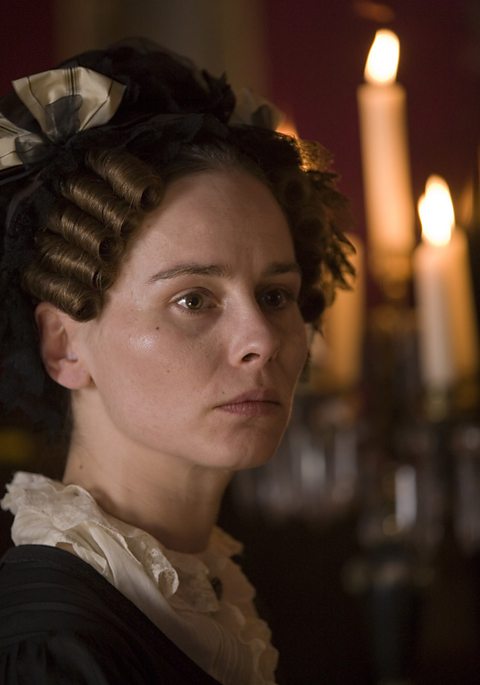Mrs Reed in Jane Eyre

Mrs Reed is Jane's aunt and she looks after Jane at Gateshead. Mrs Reed is cruel towards Jane, offering her little happiness and punishing her relentlessly. She punishes Jane by locking her in the Red Room and forbidding anyone to let her out. Mrs Reed idolises her children, John, Georgiana and Eliza, making them selfish, egotistical and arrogant.
At the end of the novel, when Mrs Reed is dying, we learn that she is jealous of Jane, as her husband loved Jane dearly, perhaps more than their own children. This could be the reason behind her malicious treatment of Jane.
| How is Mrs Reed like this? | Evidence from the text | Analysis | |
| Cruel | Mrs Reed is cruel as she locks Jane in the haunted тRed Roomт at Gateshead She locks Jane in the room and doesn't come to her aid when she pleads and cries for help. | Mrs Reed, impatient of my now frantic anguish and wild sobs, abruptly thrust me back and locked me back in, without further parley. | Mrs Reed appears ruthless, as she 'abruptly' pushes her into the room, and locks the door. BrontУЋ's uses descriptive language such as 'impatient', 'thrust' and 'abruptly.' These words highlight how Mrs Reed wants to punish Jane and it is almost second nature to her. This makes it all the more horrific as Jane, a child, was 'frantic' and sobbing wildly. |
| Jealous | Mrs Reed is jealous of Jane as she believes her husband, Mr Reed, loved Jane more than his own children. As a consequence, this makes Mrs Reed love her children more and despise Jane further. | I would as soon have been charged with a pauper brat out of a workhouse: but he was weak, naturally weak. | Mrs Reed never wanted to look after Jane and despised the fact that she had to. The repetition of the word 'weak' emphasises how Mrs Reed despises Mr Reed for loving Jane, almost ridiculing and chastising him for it. |
| Cruel | |
|---|---|
| How is Mrs Reed like this? | Mrs Reed is cruel as she locks Jane in the haunted тRed Roomт at Gateshead She locks Jane in the room and doesn't come to her aid when she pleads and cries for help. |
| Evidence from the text | Mrs Reed, impatient of my now frantic anguish and wild sobs, abruptly thrust me back and locked me back in, without further parley. |
| Analysis | Mrs Reed appears ruthless, as she 'abruptly' pushes her into the room, and locks the door. BrontУЋ's uses descriptive language such as 'impatient', 'thrust' and 'abruptly.' These words highlight how Mrs Reed wants to punish Jane and it is almost second nature to her. This makes it all the more horrific as Jane, a child, was 'frantic' and sobbing wildly. |
| Jealous | |
|---|---|
| How is Mrs Reed like this? | Mrs Reed is jealous of Jane as she believes her husband, Mr Reed, loved Jane more than his own children. As a consequence, this makes Mrs Reed love her children more and despise Jane further. |
| Evidence from the text | I would as soon have been charged with a pauper brat out of a workhouse: but he was weak, naturally weak. |
| Analysis | Mrs Reed never wanted to look after Jane and despised the fact that she had to. The repetition of the word 'weak' emphasises how Mrs Reed despises Mr Reed for loving Jane, almost ridiculing and chastising him for it. |
Whilst Jane is at Thornfield, she visits her aunt, Mrs Reed at Gateshead. This is because her aunt has requested it and is on her death-bed. During this visit, Jane's behaviour and perception of her aunt changes, as she forgives her aunt for her past behaviour and treatment.
Question
Why does Jane change her opinion of her aunt and forgive her?
- She wishes to forgive her so she can die peacefully.
- She understands that she is jealous of the love Mr Reed had for Jane and not their own children.
- She pities Mrs Reed and her position, as her son has gambled their fortune away and Mrs Reed has nothing.
- Jane has matured and has realised the true meaning of life.